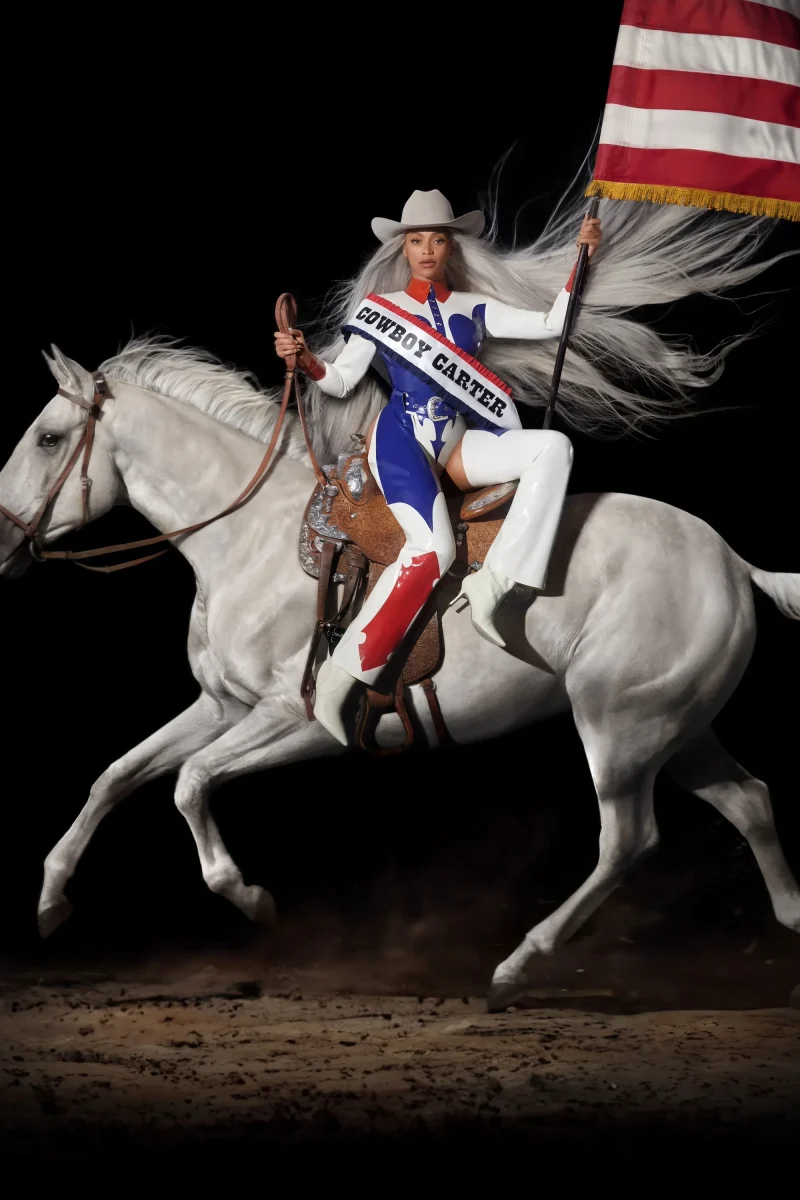Cowboy Carter, the eighth album of our global revolutionary star, Beyoncé, released on March 29th, features twenty-seven songs of R&B/soul pop, the most recent being country genre (Wikipedia). Looking past the initial fascination at seeing the pop star Beyoncé release a country album, her attempt at bringing the history of black artists to light. Much like how Renaissance sought to bring attention to the efforts of people of color behind the development of house music, Cowboy Carter “…offers up the same opportunity for mainstream culture to acknowledge just how much country music owes its sound and history to Black artists” (Vox).
The song in the album brought to my attention by my history teacher, Ms. Garcia, was “BLACKBIRD,” a cover of a song from The Beatles album, released in 1968 – the height of the Civil Rights Era. “Blackbird” was written a few weeks following the assassination of Martin Luther King; it was a devastating moment that faltered the momentum of the Southern strife against Jim Crow. More specifically, Paul McCartney wrote the song, which was especially inspired by the Little Rock Nine (UDiscover Music). Following Brown v. Board of Education, which ruled segregation as inherently unequal and ordered the integration of public schools, the South responded with massive resistance. When nine black kids volunteered to integrate into white schools, Governor Faubus went as far as ordering the Arkansas National Guards to prevent black students from entering the Central High School (Eisenhower Library). Inspired by the sheer amount of courage and persistence the Little Rock Nine displayed, McCartney wrote the song in mind with, “‘…a Black woman, rather than a bird.’” He recalls, “‘…this was a song from me to a Black woman…‘Let me encourage you to keep trying, to keep your faith, there is hope’’” (Audubon).
The song’s story with black history is not limited to the Civil Rights Movement of the 60s. “‘Blackbird’ is a song with a long history in Black music, from reggae…to jazz legends including Ramsey Lewis, Sarah Vaughn, and Cassandra Wilson” (Rolling Stone). Even in black disco culture, Sylvester, an openly queer black pop star, sang a disco version of the song in 1979. The song resembles a stark contrast from the original: an energetic, powerful reclaiming of the hope that McCartney aimed to spark back in the 60s. Now, “Blackbird” is sung by pioneering modern black artists such as Anderson Paak (in 2013) and Beyoncé (Rolling Stone).
What was most fascinating to me upon learning the story behind the song was how interconnected history is to the culture we see today. What seems so far back in history to be relevant in our lives appears repeatedly, even if you might not realize it. Katherine Nguyen (11) shares this sentiment: “It is interesting to see topics we learned in history classes entwined with modern pop culture.” There are vast interlinkings of concepts we learn in history that affect several branches of our livelihood to the current moment. The seemingly obscure and abstract themes we learn in history class shape every interaction leading up to the present – even Beyoncé’s new album.




























